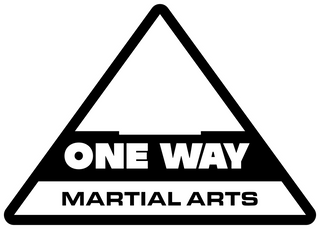Brazilian Jiu-Jitsu (BJJ) is renowned for its practical and effective techniques, making it a popular choice for self-defense and sport alike. At the heart of this martial art lie fundamental skills that form the core of every practitioner's training journey. Whether you're new to Jiu Jitsu or looking to reinforce your foundation, mastering these basic skills is essential for advancing in the art.
The Foundation of Basic Jiu-Jitsu Skills
1. Position Control
A crucial element of BJJ is learning how to control your opponent's body through positional manipulation. As beginners, you'll learn the basics of maintaining dominant positions, such as mount and back control, and navigating and escaping from non-dominant positions like guard and side control.
2. Grips and Control
Grips are crucial for controlling your opponent's movements and positioning in Jiu Jitsu. Learning how to establish and maintain grips—whether collar, sleeve, or lapel—allows you to dictate the flow of a match and set up submissions or sweeps. Effective grip management is a cornerstone of strategic grappling.
3. Escapes and Defense
Defense is as important as offense in Jiu Jitsu. Learning escapes from inferior positions, such as mount or side control, enables you to regain control or neutralize your opponent's attacks. Understanding defensive strategies and maintaining composure under pressure are essential skills for surviving and turning the tide of a match.
4. Guard Passing and Top Control
Guard passing involves moving past an opponent's legs to establish dominant positions such as side control or mount. Mastering guard passing techniques allows you to control and apply pressure from advantageous positions, setting up submissions or securing points in competition. Effective top control requires awareness of balance, pressure, and maintaining dominant positioning.
5. Submissions and Submission Defense
Submissions are the ultimate goal in Jiu Jitsu, where practitioners use joint locks or chokes to force opponents to submit. Learning how to apply submissions with precision and timing requires understanding leverage and anatomy. Equally important is learning submission defense techniques to protect yourself from opponents' attacks and escapes.
Developing Mastery in Basic Skills
1. Consistent Practice and Repetition
Mastery of basic skills comes through consistent practice and repetition. Drill fundamental techniques regularly to build muscle memory and reflexes. By integrating basic skills into your training routine, you reinforce foundational principles that support advanced techniques and strategies.
2. Progressive Learning and Application
Progression in Jiu Jitsu involves continually refining basic skills while exploring more complex variations and combinations. As you advance, revisit fundamental techniques to deepen your understanding and refine your execution. Apply basic skills in live sparring to test their effectiveness and adaptability in real-time scenarios.
3. Adaptability and Problem-Solving
Basic Jiu Jitsu skills provide a framework for adaptability and problem-solving on the mat. Each technique serves as a tool in your arsenal, allowing you to respond strategically to different situations and opponents. Developing a versatile skill set empowers you to adjust your approach based on variables such as size, strength, and opponent's skill level.
Beyond Technique: Benefits of Mastering Basic Skills
1. Confidence and Self-Efficacy
Mastering basic Jiu Jitsu skills builds confidence in your ability to navigate and succeed in challenging situations. As proficiency grows, so does your self-efficacy—your belief in your capacity to achieve goals both on and off the mat.
2. Physical Fitness and Mental Acuity
Training in Jiu Jitsu improves overall physical fitness, including strength, flexibility, and cardiovascular endurance. The mental aspect of the sport—focus, resilience, and problem-solving—enhances cognitive abilities and fosters mental clarity under pressure.
3. Community and Camaraderie
The journey of mastering basic skills often unfolds within a supportive community of fellow practitioners. Building friendships and mutual respect with training partners creates a motivating environment where everyone contributes to each other's growth and success.
Embrace the Journey
Whether you're a beginner taking your first steps in Jiu Jitsu or an experienced practitioner refining your technique, mastering basic skills is the foundation of your martial arts journey. Embrace the process of learning, practice with dedication, and enjoy the transformative benefits that Jiu Jitsu offers. The path to mastery begins with mastering the basics—start your journey today At One Way Martial Arts!
